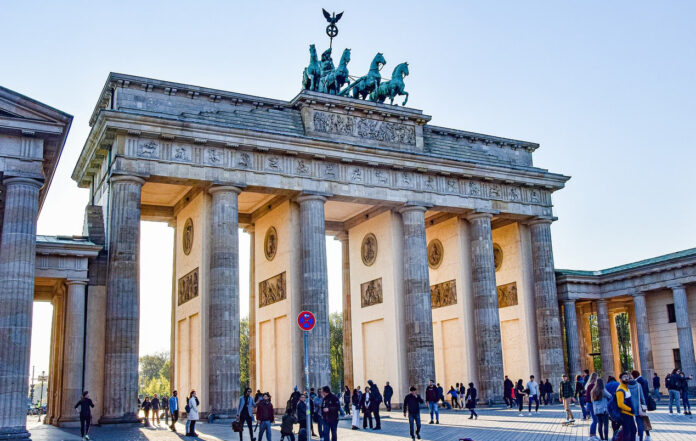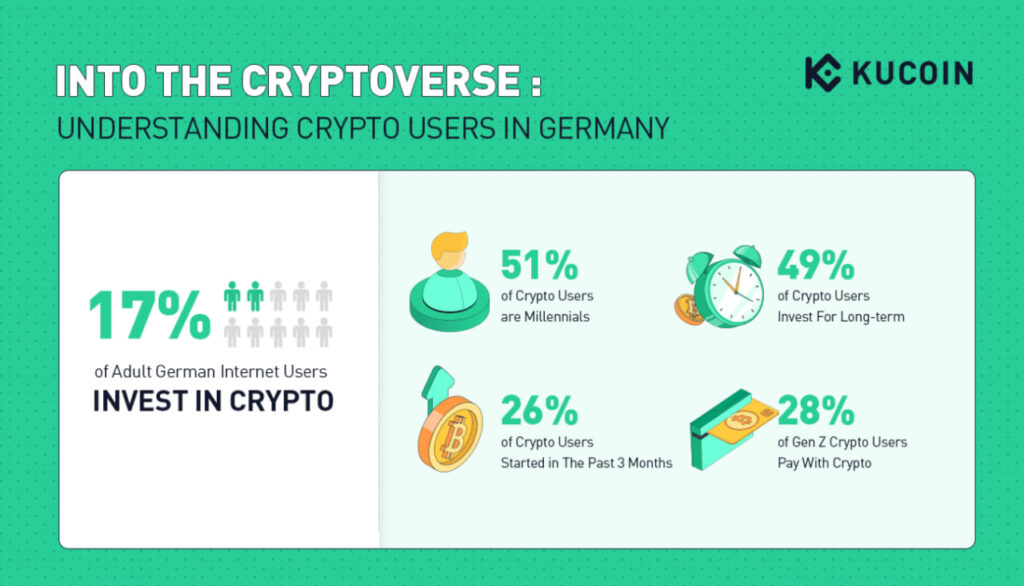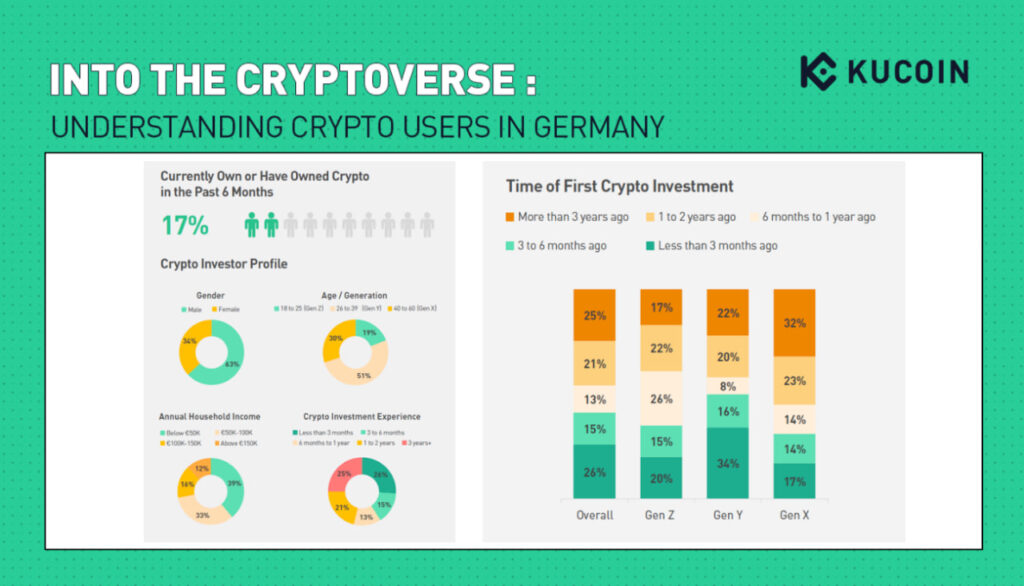
Interest in Bitcoin and cryptocurrencies among German investors has grown significantly, especially among millennials, a recent study has indicated.
More and more Germans are optimistic about Bitcoin and cryptocurrencies, according to a recent study conducted by Kucoin in collaboration with German cryptocurrency magazine BTC-ECHO.
The study, titled Into the Cryptoverse: Understanding Crypto Users in Germany, was aimed at the German market, one of the most dynamic and powerful in Europe and one of the most interested in the crypto industry. According to the results of the study, 17% of the adult German population invests in cryptocurrencies. 49% of these investors are long-term investors, while 26% indicated that they have owned bitcoins and other cryptocurrencies for at least 3 months.
The study of the German crypto market also revealed that investors aged between 26 and 39, who belong to the Millennial generation, account for 51% of the cryptocurrency market share.

Kucoin and BTC-ECHO interviewed 500 cryptocurrency investors between the ages of 18 and 60. The study was conducted last May and its results were recently published.
Millennials lead cryptocurrency investment in Germany
Compared to investors of other generational ages, Millennials lead Bitcoin investment and cryptocurrencies. According to the study, in Germany, this is the generation that trusts the crypto industry the most.
“Thirty-four percent of Millennials invested in crypto for the first time in the past three months, compared to 34% of Gen X and 20% of Gen Z investors,” the study said.

On the other hand, according to Kucoin, the crypto winter did not significantly affect German investors’ interest in cryptocurrencies. In fact, almost a quarter of investors, 21%, have been involved in investing in crypto assets over the past 12 to 24 months, showing that despite the bearish crypto market conditions in 2022, investors in Germany are still very interested in these digital assets.
A long term investment
As for preferences regarding the type of investment in cryptocurrencies, the study notes that Germans prefer to hold or hold cryptoassets for the long term.
Bitcoin, the largest cryptocurrency by market capitalization, has emerged as an alternative asset for storing value. That is why, in addition to protecting themselves from the devaluation of fiat money, Germans are confident that cryptocurrency can help them consolidate their plans for long-term wealth accumulation.
“49% of crypto investors based in Germany believe that cryptocurrencies can help them realize their plans to accumulate wealth… 25% of investors believe in the potential of cryptocurrencies as a store of value against the depreciation of fiat in an environment of great economic uncertainty,” the study said.
Preferences and use cases
On the other hand, among the reasons why cryptocurrencies are gaining more popularity in Germany, the investors surveyed indicated that it is an investment they feel comfortable with (30%) and that it is also fun (32%).
Most German investors use cryptocurrencies for the store of value and trade, although other use cases also stand out, such as Online shopping, payments and transactions, NFT acquisition, salaries and donations to non-profit organizations.
When it comes to the most popular cryptocurrencies, 64% of the German investors surveyed said they owned Bitcoin. 40% said they owned Ethereum.
Germany, the world's leading crypto economy
Regarding the current state of the crypto industry in Germany, Kucoin noted that the landscape has been evolving and becoming more promising. According to the company, there is currently a strong demand for projects in the NFT, DeFi, Metaverse and Web3 crypto sectors.
In October last year, the Coincub platform said that the country had become the largest crypto economy in the world, leading the crypto industry due to favorable regulatory, fiscal and environmental conditions, as well as the interest of the population in Bitcoin and cryptoassets and the government in tokenization, the proliferation of companies and the volume of trade operated with cryptoassets.
Continue reading: PwC Germany and Chainlink Labs partner to accelerate enterprise use of blockchain


